Surviving the Holidays with Autism
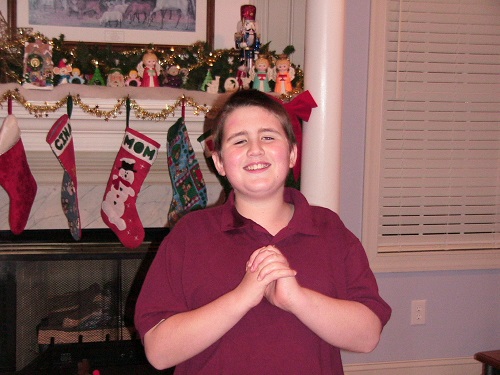
We all love the holidays. There are decorations to put up, food to prepare, gifts to buy, and family to visit. However, for a family living with autism, this can be one of the worst time of the year. There are so many changes and unexpected interruptions, that a child with autism can easily become overloaded and withdrawn. You cannot keep the holidays from happening, but there are some things you can do to make it a happier and calmer time for you and your child.
So, this is the goal:
We want our kids to not only survive the holiday season, but to also enjoy it. We picture family embraces and laughter at the Thanksgiving table. We think of smiles on Christmas morning. Although never a guarantee, here are some tips for making that happen.
- Set realistic expectations.
Don’t set yourself up for failure. Realize that this is not going to be an easy time. It is also not going to be a fairy tale. You will have to make some adjustments and perhaps alter some family expectations. If you will be visiting with family, talk with them about some problems you think may arise. If they know what is coming, that will be more accepting and able to make the necessary adjustments.- Time of visit
- Length of visit
- Meals
- Gift giving
- Tantrums and negative behaviors
- Inappropriate behaviors
- Awkward greetings
- Eye contact
- Touching, physical closeness (by others or your child)
- Wanting to leave early
- Picky eating
Here is a great example. My son cannot handle eating with everyone at the table. When we get together with my husband’s family there are 19 of us all gathered around the table. Talk about sensory overload!!
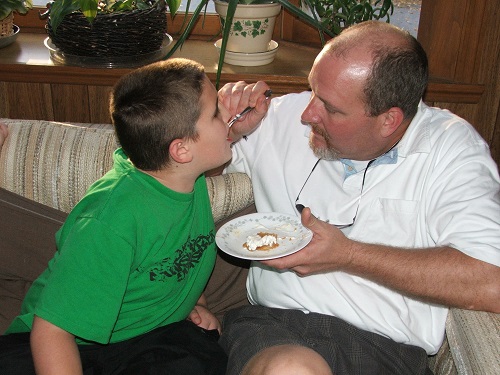
I have talked with my family about the fact that I will have to feed my son either before or after everyone else has eaten. At first, this made some people upset. After all, shouldn’t we all be together on Thanksgiving? Just try it, they would ask. But, I KNEW this would only lead to a potential meltdown and unpleasantness for all. Instead, I involved other family members when it came to my son’s meal. His favorite Uncle would help him eat dessert. Now, that was a special memory!!
- Eliminate or minimize triggers
Think about where you will be spending some of your holiday time that is away from home. Are there triggers that will be present that you could potentially eliminate or minimize if you talked about it beforehand?- Pets
- Loud noises
- Bright lights
- Unusual smells
- New foods, drinks
- Greetings (hugs, kisses)
- Lots of movement
- Television, music
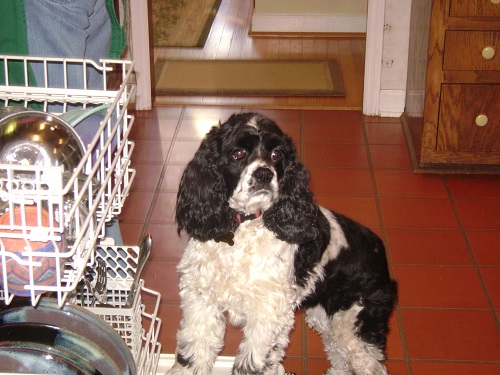
My son, really does not like dogs. He is afraid of the noise they make and the unpredictability of their movements. It is not easy to go into someone else’s house and ask them to please put their beloved pet in another room. It seems very unfair. However, I have found this to be crucial to my son having a successful visit. In addition, it is important the dog be put away BEFORE we get there. I know my son will be terribly anxious just going into another home. If he is even greeted by a dog, it will create a negative first impression that I may not be able to overcome.
I know this can be a very sensitive topic, and I have not always been able to accomplish it myself, but talk with your family if your child has certain triggers that could potentially be eliminated.
- Prepare the environment
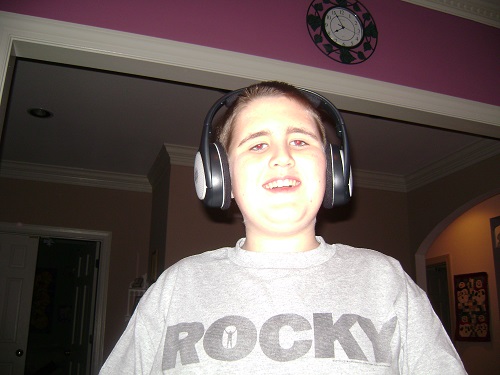
For many individuals with autism, large crowds in small spaces can be very troubling. I have found that most of my family is more than happy to set up a “safe place” for my son to escape to where no other family members are likely to be located. Sometimes this is a spare room or an office. It really helps if he knows there is a place that is quiet. Then, family can go in and visit with him a few at a time, and actually have a meaningful and positive interaction. If there simply isn’t room for a safe place, try a pair of head phones to help lessen the noise. Also, a favorite toy, book or other object can help create a sense of security as well.
Also, make sure your family knows that accidents may occur. It is always best to put up those family heirlooms or other irreplaceable items so you don’t have to be worried about a vase being thrown in a tantrum (yep, happened to me.)
- Prepare your child
Talk with your child in a calm and safe place about the upcoming holidays. Talk about it often and in a predictable and repetitive manner so it becomes part of their internal dialogue. I like using social stories for this purpose. Read the story every night for about 2-3 weeks to help lessen the anxiety for your child. I found it also helped me to remember what I was supposed to do if things got a little crazy. Download a FREE social story you can use with your child while preparing for the holidays.
The holidays are never an easy time when you have a child with autism, but there are things you can do to make it a better experience. Finally, when the holidays are over take some to evaluate what went well and what did not so that next year, with some more tweaking, your holidays will be even better.



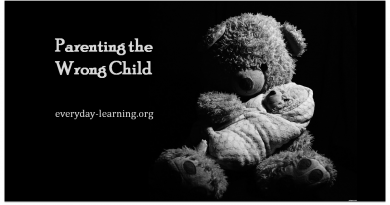

Excellent advice. Thanks for all your hard work.
This advice is spot on! I really liked how you pointed out the “triggers” to be aware of (as most of us are not) before the holiday arrives and also the emotional/mental prep that you can do to lessen the anxiety of the family gathering for the child with autism. Everyone should be aware of these things and be patient and understanding–with everyone and not just the person with autism! 🙂